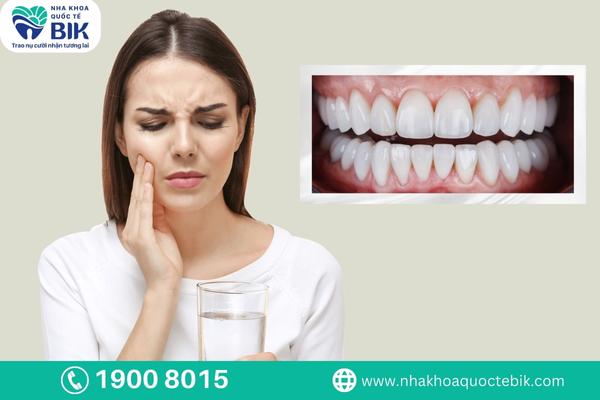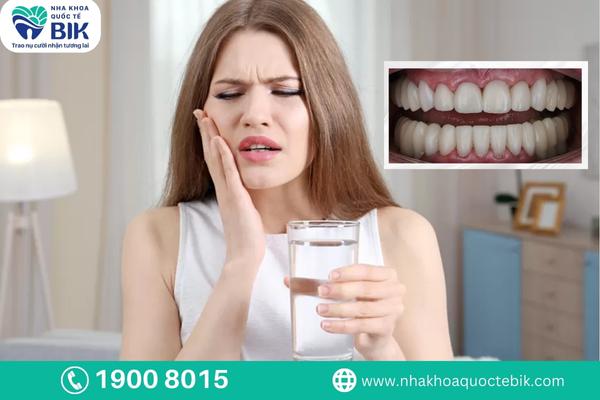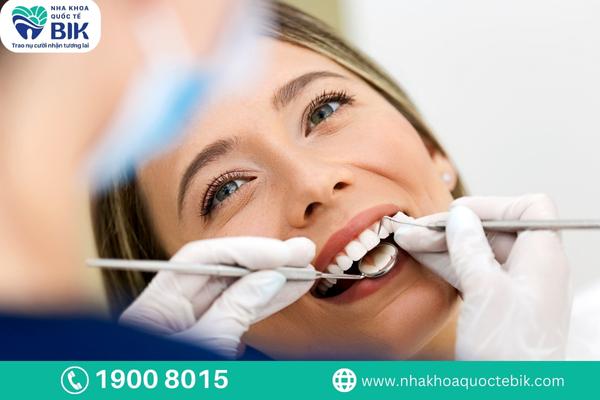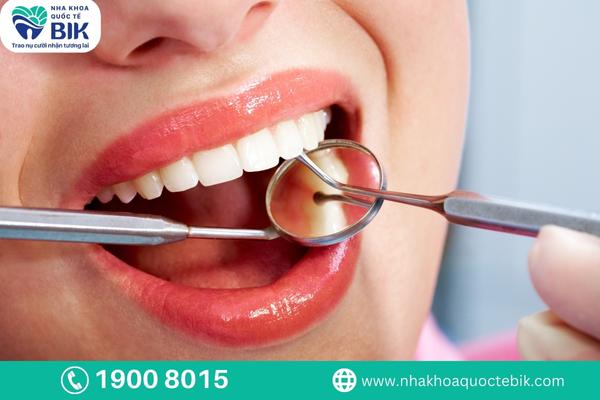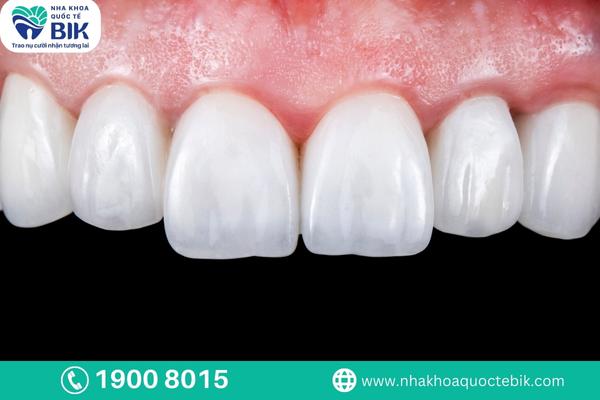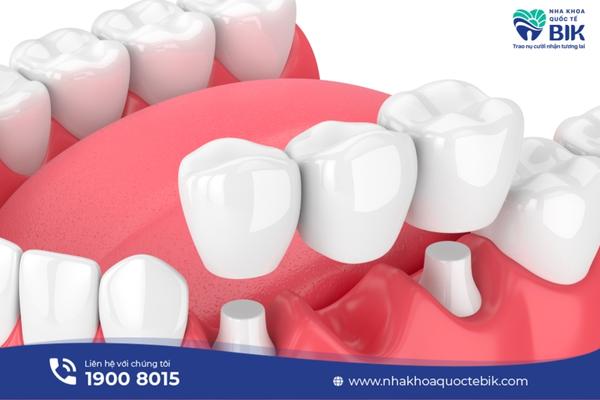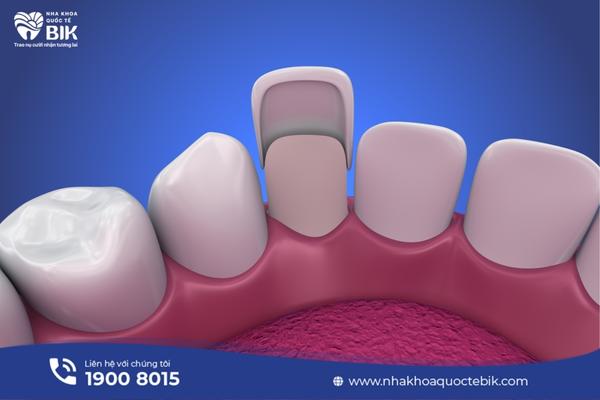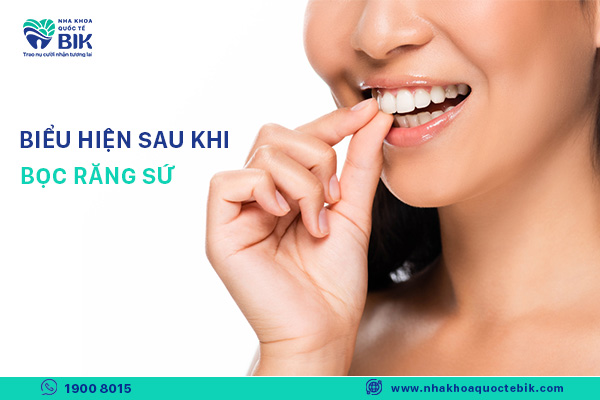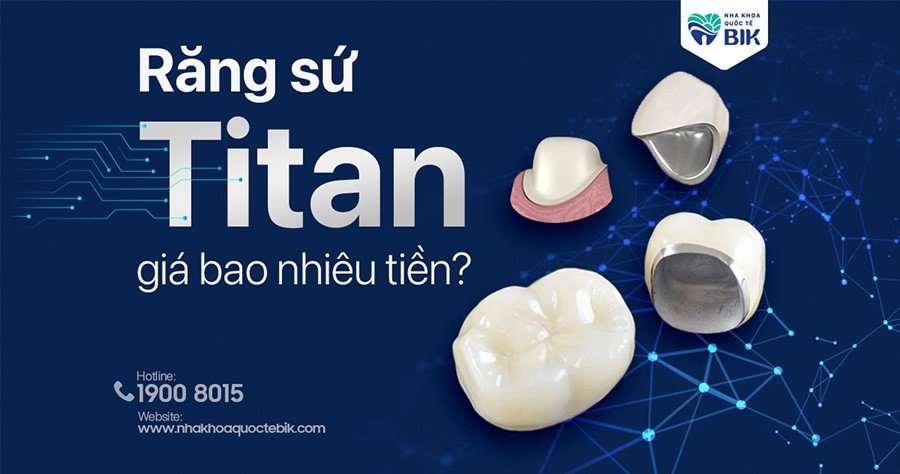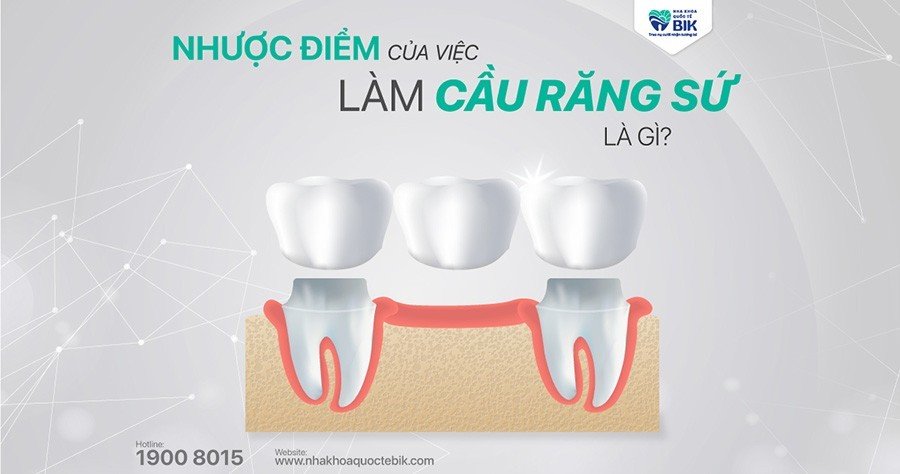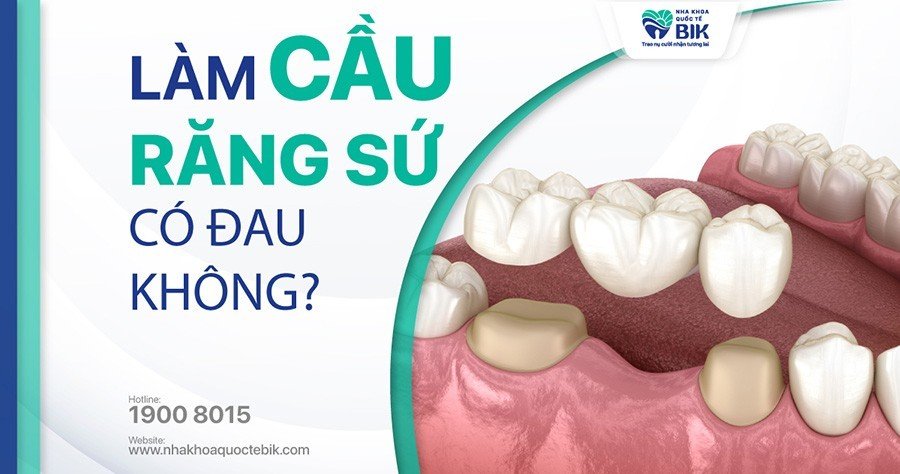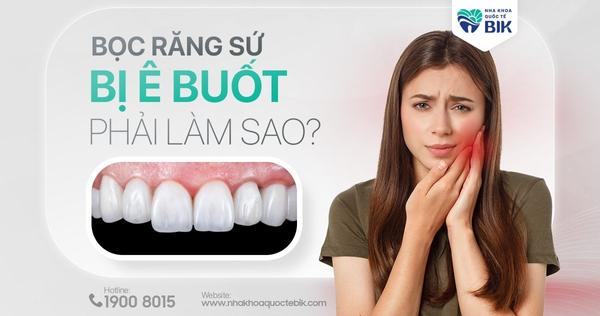
The condition of porcelain crowns being sensitive for about 2-3 days is completely normal, but if there are no signs of improvement after a few days, customers should go to the dentist for a complete solution. Accordingly, how to reduce the discomfort at home when porcelain crowns are sensitive is a matter of concern for many people.
1. Causes of tooth sensitivity after porcelain crowns
The condition of tooth sensitivity after porcelain crowns can be due to the following reasons:
1.1. The gums have not had time to adapt
This is a fairly common cause of tooth sensitivity when making porcelain crowns. When the porcelain crown has just been installed, the gums will need a certain amount of time to adapt depending on each person’s constitution. This makes the gums and teeth more sensitive, easily causing pain and aching, making customers feel uncomfortable and sometimes affecting their daily life.
1.2. Untreated pulp disease
Another reason why porcelain crowns are sensitive is that the dentist has not thoroughly treated the pulp disease before performing porcelain crowns. Inflammation of the tooth tissue and pulp will also lead to sensitivity of porcelain crowns.
1.3. Tooth grinding ratio exceeds the allowable level
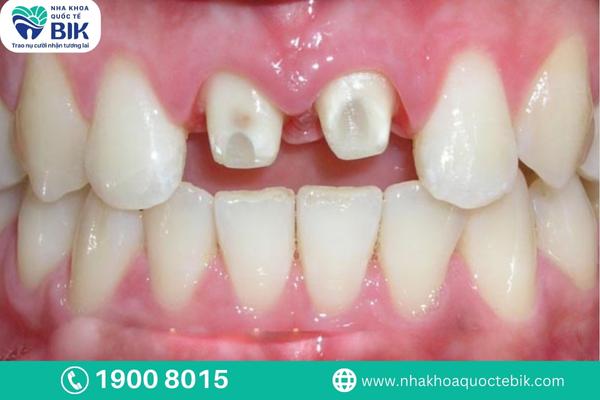
The tooth enamel grinding ratio must always be determined before porcelain crowns to ensure the safety of oral health. However, if the doctor performing the procedure is not skilled and the operation is not precise, the tooth structure or pulp may be affected during the grinding process. Therefore, the condition of porcelain crowns being sensitive is inevitable.
1.4. Position of porcelain teeth is misaligned
If the porcelain teeth are installed in the wrong position and deviate from the standard bite, are higher than normal or deviate from the opposite tooth, the chewing force will be concentrated on the porcelain teeth, increasing pressure on the real tooth root, creating a feeling of pain after making porcelain teeth.
1.5. Leaking dental glue
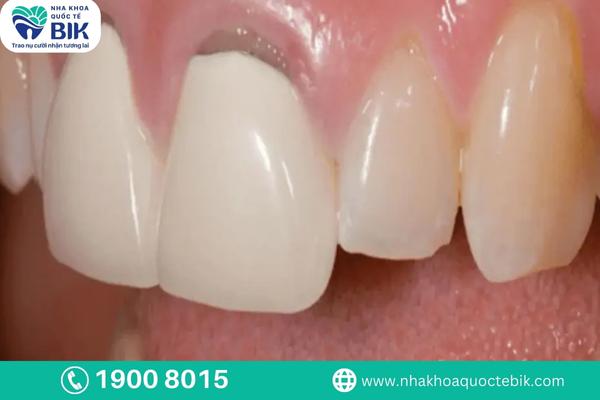
Another reason why porcelain teeth are sensitive is that the dental glue is loose, loose or leaking out. This only happens when customers choose to have porcelain crowns done at poor quality dental facilities with old equipment, so the adhesive may not be durable.
1.6. Poor quality porcelain crowns
Currently, many dental clinics use fake, poor quality porcelain crowns for profit. These materials have not been tested to be safe and benign in the oral environment, so they can cause dangerous complications that cause porcelain crowns to be sensitive.
1.7. Habit of grinding teeth
The habit of grinding teeth regularly will cause the porcelain crown and the opposite tooth to impact each other with a fairly large force. If not corrected quickly, it will cause tooth sensitivity after porcelain crowns are done.
2. What to do if porcelain crowns are sensitive?
You can apply some of the following ways to overcome the situation of porcelain crowns being sensitive as follows:
2.1. Use pain relievers
It can be said that using pain relievers is the fastest way to overcome the situation of porcelain crowns being sensitive and painful. However, customers should only use the medicine according to the dosage prescribed by the doctor. Absolutely do not buy medicine from outside without a doctor’s prescription to avoid dangerous side effects on your health.
2.2. Rinse your mouth with salt water
Rinsing your mouth with diluted salt water twice a day is the simplest way to reduce pain after porcelain teeth. In addition to quickly reducing pain, this method also has the effect of eliminating bacteria and preventing diseases related to teeth and mouth such as tooth decay, gingivitis, periodontitis, etc.
2.3. Ice pack

Sensitive porcelain crowns can be treated with ice packs to temporarily reduce the pain extremely effectively. Customers should only apply ice to the cheek area outside the porcelain crown for about 10 minutes, stop for a while and then continue applying. Absolutely do not apply ice directly to the porcelain crown because it can make the pain worse.
2.4. Use cooling gel
If the tooth grinding process causes damage to the dentin, the best solution to treat sensitivity after porcelain crowns at home is to use cooling gel. Applying this gel to the tooth root will help reduce the pain quickly, however, customers need to have a doctor’s guidance when applying this method.
2.5. Use a dental guard
If the cause of the pain in the porcelain teeth is the habit of grinding teeth regularly, customers can consult a doctor to fix it by wearing a dental guard. Thanks to that, the opposite tooth will not be able to directly touch the porcelain teeth.
3. Fixing sensitive porcelain crowns at the dentist
If the condition of sensitive porcelain crowns and pain persists without signs of improvement, customers should visit a reputable dental facility as soon as possible. The doctor will thoroughly examine and find the cause of the customer’s discomfort, thereby providing the most appropriate treatment plan.
If the tooth is sensitive after porcelain crowns due to misaligned bite, the doctor will prescribe removing the porcelain crown and reinstalling it. If the body is allergic to metal or the porcelain material is not suitable, the customer can be advised to choose all-ceramic crowns to ensure long-term safety.
4. How long does it take for porcelain crowns to stop being sensitive?
The phenomenon of porcelain crowns being sensitive usually lasts about 2-3 days after cosmetic porcelain crowns. However, in reality, there are still many people who only have toothache for a few hours or it can last for about 4-5 days for people with weak constitution and sensitive teeth.
The duration of porcelain crown sensitivity also depends on the dentist’s skills. If the dentist’s tooth grinding is meticulous and precise, helping to minimize the invasion of real tooth enamel, the sensitivity will also be significantly reduced.
5. Proper dental care after porcelain crowns
To avoid the situation of porcelain crowns being sensitive and painful for a long time after porcelain crowns, customers need to pay attention to the following issues:
5.1. Oral hygiene
Brush your teeth with a soft-bristled toothbrush at least twice a day. Use moderate force and brush your teeth vertically or in a circular motion to avoid damaging your teeth and gums.
Replace your toothbrush every 3-4 months to prevent bacteria from accumulating.
Use dental floss and mouthwash to completely remove food particles in between your teeth.
5.2. Reasonable diet

Do not eat food that is too hard or too tough, but use too much force to avoid breaking or chipping porcelain teeth as well as avoiding affecting the real tooth stump.
Limit the use of foods that are too cold or too hot right after porcelain crowns because it can make the porcelain tooth sensitivity worse.
Stay away from tobacco because this is the leading cause of tooth discoloration and yellowing
So with the information provided above, BIK International Dental Clinic hopes that you have answered the question of what to do if porcelain crowns are sensitive? To avoid the situation of porcelain crowns being sensitive and having prolonged toothache, you should choose to have porcelain crowns done at a reputable dental clinic with a team of highly skilled and qualified doctors.

